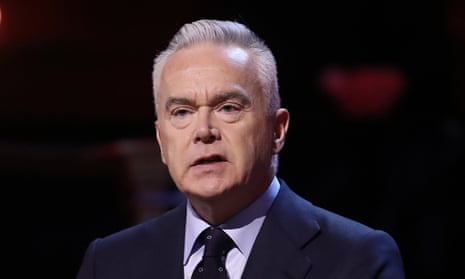Last September, Huw Edwards sprinted out of a barbershop near his south London home after being summoned to the BBC’s headquarters so he could announce Queen Elizabeth’s death to the nation.
Now the BBC is weighing up whether it can ever reuse footage of Edwards’s historic royal broadcast, with the presenter still suspended in the wake of the Sun’s partly-retracted allegation that he paid a 17-year-old for explicit images.
It has been almost two months since the newspaper sparked both the fiercest and shortest BBC scandal in recent history. Within a week, it went from being a story that could topple the director general to one that was barely meriting a mention in the wider media.
Yet questions remain for the BBC, the Sun and the presenter himself – and it is unclear whether Edwards will ever be able to unwind the knotty mess of public, personal and workplace issues that have him left him off air.
One senior BBC journalist summarised the verdict of large parts of the newsroom when it comes to Edwards’s employment prospects: “No one expects him to come back.”
Some of Edwards’s closest colleagues say they have not heard from him in weeks. They say he is not responding to messages.
Though the police declined to investigate the Sun’s allegations, which were based on the testimony of concerned parents, Edwards still faces an internal workplace investigation that will consider whether he brought the broadcaster into disrepute.
Key individuals have yet to be updated on the progress of the BBC inquiry, which is described as still being at the “fact-finding” stage, suggesting there is no imminent conclusion in sight, with the presenter suspended and believed to be on his full £435,000-a-year pay.
One of the key issues that fanned the flames of the original story was the vague language used by the Sun in its original reporting – which the newspaper argues was an attempt to protect Edwards’s privacy.
The tabloid used gender-neutral terms such as “child” and “young person” to describe the person alleged to have been paid tens of thousands of pounds by Edwards in return for explicit pictures.
This – along with the mention of the individual being 17 when communication began – gave the impression that Edwards may have committed a criminal offence.
Dame Elan Closs Stephens, the BBC’s interim chair, subsequently told a parliamentary committee that the individual alleged to have received the money from Edwards was a “young man”.
The decision by the top BBC board member to state the gender of the 20-year-old at the heart of the allegations was largely overlooked at the time of the hearing.
But in response, Victoria Newton, the editor of the Sun, told the same committee that Closs Stephens had revealed more details about the young person than her newspaper. She said: “At no point have we identified the gender of the young person, which the BBC has done on more than one occasion.”
after newsletter promotion
Yet it is subsequent allegations against Edwards – including complaints about the presenter’s social media messaging habits – which could ultimately cause him more headaches than the original disputed Sun story.
Gossip about Edwards’s habit of sending messages to younger members of staff in the BBC newsroom and on Instagram had been circulating for several years. Some of those who received them believed he was not aware of how some of the messages were being perceived and the power dynamics involved, considering him to be naive rather than acting improperly.
Others were less forgiving; some of the messages were said to have left junior staff convinced they had done something wrong.
BBC News’s own reporting suggested Edwards had messaged three young BBC employees, including one who is still at the organisation, with messages that made them feel uncomfortable.
Edwards also lacks a natural support base in the newsroom, having not always endeared himself to fellow BBC staff and management.
As one former colleague put it: “He thought he was on top of anything, he thought nothing of going straight to the director general and banging on the door. He was the colossus of the newsroom, he thought he had impunity.”
The presenter had a strong sense of his own value, especially after having to take a pay cut in the wake of the BBC’s gender pay scandal. His widely praised handling of the announcement of the Queen’s death landed in the middle of protracted negotiations over a new BBC contract, with Edwards publicly flirting with leaving the corporation for a private sector job.
In an incredible coincidence, he was photographed by a paparazzo who happened to be watching the back entrance of Global – parent company of the radio stations LBC and Capital – last September.
Sources at ITV said he was also briefly considered as a potential replacement for Piers Morgan as host of Good Morning Britain.
“Huw insisted he would need to keep doing his BBC royal coverage,” said one individual with knowledge of the talks, suggesting Edwards had a misplaced idea of how feasible it would be to straddle both major broadcasters.
In the end, Edwards signed a new BBC deal – only months before being suspended when the Sun approached the corporation for comment about the then-unnamed presenter.
Edwards was eventually identified publicly by his wife, Vicky Flind, who said he had been seeking help for mental health issues. Her statement, drafted with assistance from the former News of the World editor Andy Coulson, prompted a swell of public support for Edwards and shut down coverage of the issue.
Flind said her husband, who often seemed to relish public fights, intended “to respond to the stories that have been published” once he felt better.
What’s unclear is whether Edwards still intends to fulfil this pledge and tries to launch a fightback – or whether he is now considering leaving quietly.
